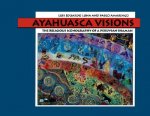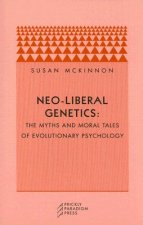
Kod: 01975814
Kaiser Wilhelm Institute for Anthropology, Human Heredity and Eugenics, 1927-1945
Autor Hans-Walter Schmuhl
When the Kaiser Wilhelm Institute for Anthropology, Human Heredity and Eugenics opened its doors in 1927, it could rely on wide political approval, ranging from the Social Democrats over the Catholic Centre to the far rightwing of ... więcej
- Język:
 Angielski
Angielski - Oprawa: Miękka
- Liczba stron: 468
Wydawca: Springer, 2010
- Więcej informacji o książce

874.50 zł

Dostępna u dostawcy w małych ilościach
Wysyłamy za 12 - 15 dni
Potrzebujesz więcej egzemplarzy?Jeżeli jesteś zainteresowany zakupem większej ilości egzemplarzy, skontaktuj się z nami, aby sprawdzić ich dostępność.
Dodaj do schowka
Zobacz książki o podobnej tematyce
Podaruj tę książkę jeszcze dziś
- Zamów książkę i wybierz "Wyślij jako prezent".
- Natychmiast wyślemy Ci bon podarunkowy, który możesz przekazać adresatowi prezentu.
- Książka zostanie wysłana do adresata, a Ty o nic nie musisz się martwić.
Więcej informacji o Kaiser Wilhelm Institute for Anthropology, Human Heredity and Eugenics, 1927-1945
Za ten zakup dostaniesz 509 punkty
 Opis
Opis
When the Kaiser Wilhelm Institute for Anthropology, Human Heredity and Eugenics opened its doors in 1927, it could rely on wide political approval, ranging from the Social Democrats over the Catholic Centre to the far rightwing of the party spectrum. In 1933 the institute and its founding director Eugen Fischer came under pressure to adjust, which they were able to ward off through Selbstgleichschaltung (auto-coordination). The Third Reich brought about a mutual beneficial servicing of science and politics. With their research into hereditary health and racial policies the institute s employees provided the Brownshirt rulers with legitimating grounds. At international meetings they used their scientific standing and authority to defend the abundance of forced sterilizations performed in Nazi Germany. Their expertise was instrumental in registering and selecting/eliminating Jews, Sinti and Roma, "Rhineland bastards", Erbkranke and Fremdvölkische. In return, hereditary health and racial policies proved to be beneficial for the institute, which beginning in 1942, directed by Otmar Freiherr von Verschuer, performed a conceptual change from the traditional study of races and eugenics into apparently modern phenogenetics not least owing to the entgrenzte (unrestricted) accessibility of people in concentration camps or POW camps, in the ghetto, in homes and asylums. In 1943/44 Josef Mengele, a student of Verschuer, supplied Dahlem with human blood samples and eye pairs from Auschwitz, while vice versa seizing issues and methods of the institute in his criminal researches. §The volume at hand traces the history of the Kaiser Wilhelm Institute for Anthropology, Human Heredity and Eugenics between democracy and dictatorship. Special attention is turned to the transformation of the research program, the institute s integration into the national and international science panorama, and its relationship to the ruling power as well as its interconnection to the political crimes of Nazi Germany.
 Szczegóły książki
Szczegóły książki
Kategoria Książki po angielsku Society & social sciences Sociology & anthropology Anthropology
874.50 zł
- Pełny tytuł: Kaiser Wilhelm Institute for Anthropology, Human Heredity and Eugenics, 1927-1945
- Podtytuł: Crossing Boundaries
- Autor: Hans-Walter Schmuhl
- Język:
 Angielski
Angielski - Oprawa: Miękka
- Liczba stron: 468
- EAN: 9789048176786
- ISBN: 9048176786
- ID: 01975814
- Wydawca: Springer
- Waga: 727 g
- Wymiary: 235 × 155 × 27 mm
- Data wydania: 19. November 2010
Ulubione w innej kategorii
-

Revolt Against the Modern World
125.61 zł -4 % -

Crisis of the Modern World
84.11 zł -

Society Against the State
100.22 zł -7 % -

Trickster Makes This World
51.87 zł -23 % -

Purity and Danger
98.31 zł -5 % -

Gene Wars
118.05 zł -1 % -

Exercised
61.24 zł -15 % -

Consider The Lobster
48.95 zł -14 % -

Face and Mask
271.78 zł -

Combatting Cult Mind Control
98.51 zł -

Nordic Theory of Everything
52.37 zł -15 % -

Fragments of an Anarchist Anthropology
57.51 zł -5 % -

Cambridge Encyclopedia of Human Evolution
440.01 zł -

Why Is Sex Fun?
47.34 zł -23 % -

Catching Fire
61.24 zł -15 % -

Five Roles of a Master Herder
80.68 zł -6 % -

Great Paleolithic War
257.98 zł -9 % -

Nature, Ritual, and Society in Japan's Ryukyu Islands
326.18 zł -

Dancing with the Dead
154.82 zł -

Revealing Lateglacial Landscapes
193.31 zł -

Our Origins
413.72 zł -5 % -

Bones of Contention
210.43 zł -

Interaction Ritual
285.78 zł -

Exploration and Discovery - Treasures of the Yale Peabody Museum of Natural History
105.26 zł -9 % -

Watching the English
51.87 zł -23 % -

Utopia Of Rules
81.18 zł -10 % -

Continuum Concept
61.24 zł -15 % -

Kill All Normies - Online culture wars from 4chan and Tumblr to Trump and the alt-right
57.31 zł -10 % -

Ritual
62.35 zł -10 % -

Totem and Taboo
37.57 zł -5 % -

How Forests Think
141.33 zł -

Designs for the Pluriverse
138.50 zł -

When Languages Die
172.05 zł -

Protestant Ethic and Other Writings
88.54 zł -11 % -

Human Story
61.14 zł -23 % -

On Saudi Arabia
79.27 zł -13 % -

Limits to Medicine
76.75 zł -7 % -

Small Places, Large Issues
116.04 zł -5 % -

Think Like an Anthropologist
51.87 zł -23 % -

Sixty Million Frenchmen Can't Be Wrong
93.68 zł -5 % -

Botany of Desire
70.41 zł -23 % -

Direct Action: An Ethnography
123.80 zł -6 % -

Ayahuasca Visions
165.50 zł -5 % -

Alexander Dumas Dictionary Of Cuisine
310.87 zł -

Stone Age Economics
98.31 zł -5 % -

Oxford Handbook of Language Evolution
225.44 zł -

Possibilities
96.30 zł -6 % -

On Kings
136.49 zł -

Memorial Museums
242.87 zł
zadowolonych klientów
Od roku 2008 obsłużyliśmy wielu miłośników książek, ale dla nas każdy był tym wyjątkowym.
Copyright! ©2008-24 libristo.pl Wszelkie prawa zastrzeżonePrywatnieCookies






 21 milionów książek
21 milionów książek Dostawa 10.99 zł
Dostawa 10.99 zł (32) 444 93 66 (8-15.30h)
(32) 444 93 66 (8-15.30h)